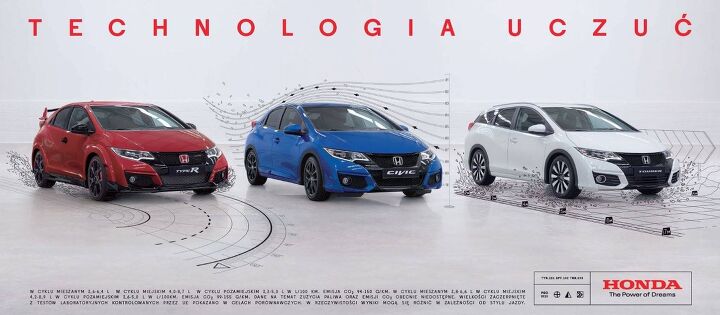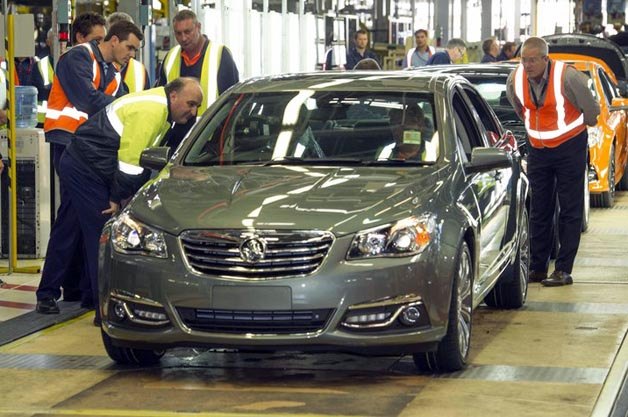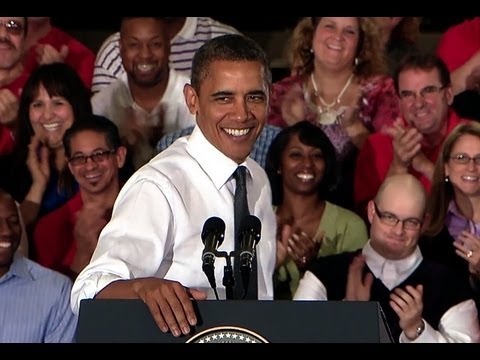#FreeTrade
Enter Number Two? Fiat Chrysler Boss Mulls U-turn on Ram HD Production
In a bid to leapfrog General Motors in pickup sales, Fiat Chrysler Automobiles CEO Mike Manley now claims his company’s Saltillo, Mexico assembly plant might continue cranking out heavy-duty Ram trucks after the next-generation model arrives.
Back in January, with the U.S. threatening steep tariffs on Mexican-made vehicles, FCA announced it would move Ram HD production to Warren, Michigan. The automaker promised $1 billion to Warren Truck Assembly to make it happen. Now, with a free trade agreement in place between the U.S. and Mexico, Manley says he doesn’t care where the trucks come from, so long as Americans choose them over FCA’s rivals.
Car, Parts Companies Exhale, but Not Everyone's Thrilled by USMCA
Canada’s autoworkers feel pretty confident they’ll still have a job next year, as the free trade agreement reached by the U.S. and its northern neighbor Sunday night pretty much keeps the status quo alive in that country’s auto sector.
Just last week, with headway essentially absent from the trade negotiations, President Trump repeated his threat of levying a 25 percent import tax on Canadian vehicles. Such a tariff could easily have seen 160,000 jobs erased from the auto and parts manufacturing industries; perhaps more.
However, just because the industry came out all right in the end doesn’t mean the future is entirely rosy.
NAFTA Is Dead; All Hail the USMCA
Following some furious 11th hour bargaining, Canada reached an agreement with U.S. trade negotiators Sunday night, marking the end of the North American Free Trade Agreement (NAFTA) and the creation of its successor, the U.S.-Mexico-Canada Agreement. USMCA, for short.
While some of the finer details have yet to be released, the trilateral trade deal prevents the nightmare scenario of heavy tariffs levied on vehicles imported from Canada. To keep General Motors, Fiat Chrysler, Ford, Honda, and Toyota plants humming, officials in the Great White North reluctantly offered up some milk and cheese.
U.S., South Korea Reach Trade Deal; No Korean-built Hyundai Pickups in America's Future
The United States and South Korea reached a free trade agreement on Monday that spared the Asian country from punitive steel tariffs, assuming Seoul keeps an eye on just how much steel it sends to American buyers.
A quota on Korean steel exports means the country can only sell 70 percent of its recent average (2015-2017) to the U.S., though it is hardly Korea’s largest export market. The deal, reached “in principle” ahead of both countries’ meetings with North Korean leader Kim Jung UN, will also see South Korea raise the limit for U.S.-made vehicles that needn’t conform to local safety standards from 25,000 to 50,000.
It’s good news for the Trump administration, but not everyone’s thrilled. Hyundai’s union is hopping mad that a steep tariff on Korean-built pickups — which was set to expire in 2021 under the previous agreement — was just renewed for another 20 years.
Union Leader Blasts Obama on Pacific Trade Talks
The head of the AFL-CIO in the United States is criticizing the current presidential administration for its pursuit of a trade zone in the Pacific that could open up Asian markets to America and vice versa, the Detroit News is reporting.
AFL-CIO President Richard Trumka wrote the administration a letter saying that a free-trade agreement with countries such as Japan jeopardizes American jobs because those countries may be able to source cheaper parts from outside the negotiated area, according to the report.
“I hope it is not the case that the Canadian and Mexican negotiators are actually holding a harder line than our own government on this issue. But due to the unaccountable lack of transparency from USTR, absolutely critical decisions are being made without our input or voice. Thousands of good American jobs and an iconic American industry are at risk, and we don’t even know what our government’s negotiating position is.”
Honda Production Announcement Provides Best Indication For Imported Civic Hatchback
On the heels of an announcement that Honda’s Alliston, Ontario plant will be the lead plant for the next generation Honda Civic, the same plant will also be responsible for building the next-generation CR-V for the European market.
Abe Administration Pushes Automakers, Nation Away From Kei Cars
For ages, the kei car has been one of the darlings of the automotive world, owing to its tiny size and equally tiny engine (that also netted owners a smaller tax bill). Alas, Japan’s littlest cars may soon be put in a toy box destined for Goodwill as the nation’s government puts the pressure on both automakers and owners to move toward supporting bigger offerings.
Analysis: Australia's Free Trade Deals Are The Final Nail In The Coffin Of Its Auto Industry
In the span of 24 hours, Australia inked two free trade agreements with both Japan and South Korea. Even though Holden, Ford and Toyota had already committed to ending auto manufacturing in Australia, it’s hard not to see the agreements as the last nail in the coffin of Australia’s once strong auto industry.
Hyundai, Kia See Weakest Annual Sales Growth in a Decade
2014 may only be a day old, but it’s already shaping up to be a rough year for Hyundai and Kia as they prepare to increase global sales by just 4 percent this year, the lowest and bleakest forecast for the Korean duo since 2003.
Ford Pushes Congress For Vehicle Standards Harmonization
A U.S. House of Represenatives subcommittee meeting became a forum for Ford to advocate on behalf of harmonized vehicle standards, as the US and EU continue to discuss a possible free trade deal.
Why Detroit Is Chicken About Free Trade Agreements. And Why Korea Hates Them Too Now
It’s not just the UAW that is upset about free trade agreements. The Koreans are likewise. The offices of the Korea Automobile Importers and Distributors Association were raided by investigators of the country’s Fair Trade Commission, the Financial Times reports. The agency alleges that BMW, Mercedes-Benz, Volkswagen and Toyota Motor were involved in price collusion.
EU-US Free Trade Deal Begins, Completion Expected In 2015
The United States and the European Union will begin talks on a free-trade agreement, which may take as long as two years to complete. The deal is expected to be worth some $613 billion annually, and could have some interesting implications for the auto sector.
Canadian Auto Workers Union Calls For "National Auto Policy" With Free-Trade Barriers, Government Intervention
“Community” is a nebulous buzzword here in liberal Canuckistan, with the term moving from a synonym for neighborhood, to describing everything from ethnic groups targeted by vote-hungry political parties, to an exercise in social engineering by Ivory Tower types, eager to ram pseudo-progressive initiatives through various legislative and judicial avenues. No wonder the CAW’s new “National Auto Policy”, full of old-school labor/social democrat policies, is being branded with the slogan “It’s About The Community”. Huh?
Obama And Lee At Orion: Free Trade Sucks, But It Beats The Alternatives
Trade Peace Watch: US-Korean Trade Pact: Korea (And U.S. Customers) In Deep Kimchi
It looks like North Korea’s artillery barrage on a small South Korean island had one of those famous unintended consequences: South Korea, faced by a belligerent enemy, decided to let bygones be bygones. A shell-shocked South Korea and a proud America “completed a free-trade agreement that will eliminate most tariffs on exports and solidify one of the nation’s most significant alliances in Asia,” as the New York Times praises the deal. South Korea stared down the barrels of North Korean guns, and America won the war that never was.
Don’t run down to your Hyundai dealer just yet and expect dramatic price reductions. The deal has major hurdles to pass. And at closer inspection, it looks like an oinking pig in a poke.





























Recent Comments